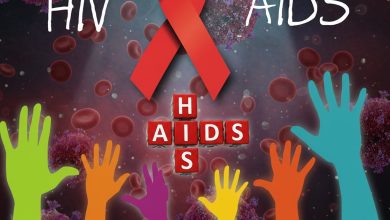
In today’s world, drug use among youth is a growing concern that threatens both the current and future generations. Various factors contribute to drug addiction, including lack of awareness, mental health issues, negative influences from social circles, peer and family pressure, curiosity, and neglect from family members. Engaging youth in sports offers a promising solution to these problems.
Participation in sports enhances personal development by improving personality, communication skills, leadership abilities, behavior, emotional control, decision-making, teamwork, and social interaction. This development fosters a lifestyle centered on health and well-being. Additionally, sports create supportive communities and social networks, providing a sense of belonging that reduces feelings of isolation, a factor that can contribute to drug abuse.
Sports also promote discipline and structure through regular practice, adherence to routines, and goal-setting. This discipline helps individuals build resilience and manage impulses, which are crucial for avoiding and overcoming addiction. Achieving goals in sports, whether mastering a new skill or winning a game, boosts self-esteem and confidence, offering positive reinforcement that can reduce the inclination towards drug use.
Furthermore, sports provide a productive outlet for channeling energy and emotions. Instead of turning to drugs to cope with stress or boredom, individuals can use sports as a constructive alternative. The focus on fitness and nutrition in sports reinforces the importance of making healthy choices and avoiding harmful substances.
Many sports organizations also include educational components about health, wellness, and the dangers of drug abuse, helping to prevent drug use by promoting informed decision-making. Parents are encouraged to support and motivate their children to participate in sports, fostering a healthy and drug-free lifestyle.
In today’s world, drug use among youth is a growing concern that threatens both the current and future generations. Various factors contribute to drug addiction, including lack of awareness, mental health issues, negative influences from social circles, peer and family pressure, curiosity, and neglect from family members. Engaging youth in sports offers a promising solution to these problems.
Participation in sports enhances personal development by improving personality, communication skills, leadership abilities, behavior, emotional control, decision-making, teamwork, and social interaction. This development fosters a lifestyle centered on health and well-being. Additionally, sports create supportive communities and social networks, providing a sense of belonging that reduces feelings of isolation, a factor that can contribute to drug abuse.
Sports also promote discipline and structure through regular practice, adherence to routines, and goal-setting. This discipline helps individuals build resilience and manage impulses, which are crucial for avoiding and overcoming addiction. Achieving goals in sports, whether mastering a new skill or winning a game, boosts self-esteem and confidence, offering positive reinforcement that can reduce the inclination towards drug use.
Furthermore, sports provide a productive outlet for channeling energy and emotions. Instead of turning to drugs to cope with stress or boredom, individuals can use sports as a constructive alternative. The focus on fitness and nutrition in sports reinforces the importance of making healthy choices and avoiding harmful substances.
Many sports organizations also include educational components about health, wellness, and the dangers of drug abuse, helping to prevent drug use by promoting informed decision-making. Parents are encouraged to support and motivate their children to participate in sports, fostering a healthy and drug-free lifestyle.
Samina saif
In today’s world, drug use among youth is a growing concern that threatens both the current and future generations. Various factors contribute to drug addiction, including lack of awareness, mental health issues, negative influences from social circles, peer and family pressure, curiosity, and neglect from family members. Engaging youth in sports offers a promising solution to these problems.
Participation in sports enhances personal development by improving personality, communication skills, leadership abilities, behavior, emotional control, decision-making, teamwork, and social interaction. This development fosters a lifestyle centered on health and well-being. Additionally, sports create supportive communities and social networks, providing a sense of belonging that reduces feelings of isolation, a factor that can contribute to drug abuse.
Sports also promote discipline and structure through regular practice, adherence to routines, and goal-setting. This discipline helps individuals build resilience and manage impulses, which are crucial for avoiding and overcoming addiction. Achieving goals in sports, whether mastering a new skill or winning a game, boosts self-esteem and confidence, offering positive reinforcement that can reduce the inclination towards drug use.
Furthermore, sports provide a productive outlet for channeling energy and emotions. Instead of turning to drugs to cope with stress or boredom, individuals can use sports as a constructive alternative. The focus on fitness and nutrition in sports reinforces the importance of making healthy choices and avoiding harmful substances.
Many sports organizations also include educational components about health, wellness, and the dangers of drug abuse, helping to prevent drug use by promoting informed decision-making. Parents are encouraged to support and motivate their children to participate in sports, fostering a healthy and drug-free lifestyle.
Samina saif




